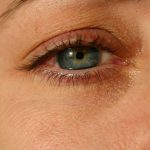Studies And Research

Anorexia Nervosa Associated With Lower Risk Of Invasive Breast Cancer
A new study review by researchers at the European Institute of Oncology in Milan, Italy has determined that women with restricted calorie intake due to anorexia nervosa have a lower risk of developing breast cancer. While these results in no way suggest that anorexia nervosa is a beneficial treatment for breast cancer, the devastating eating …

Anorexic Individuals Unable To Accurately Judge Their Own Body Size
A new research study published in the August 22nd edition of the journal PLoS ONE, has uncovered evidence that persons suffering from anorexia struggle to accurately judge their own body size. Although the study participants with anorexia were unable to accurately judge the size of their own bodies, they did not appear to exhibit the …

Anorexics And Obese Individuals Shown To Have Opposite Brain Reward Response
A new study published in the journal Neuropsychopharmacology has provided experimental evidence for opposite brain reward responses in individuals with obesity and anorexia. The researchers wanted to determine whether or not rewards are perceived differently by the brain in persons suffering from eating disorders such as anorexia. They suspected that obese individuals would demonstrate a …

Brain Circuitry Differences Detected Between Obese And Anorexic Women
A new study by researchers at the University of Colorado School of Medicine has determined that the reward circuits in the brains of anorexic women are sensitized, whereas the reward circuits in the brains of overweight or obese women are desensitized. This may result in different eating behavior patterns related to motivation and reward, as …

Calorie-Restricted Diet Not A Factor In Extending Lifespan According To Study
A 23-year study conducted by researchers at the National Institute on Aging determined that restricting the number of calories consumed did not increase the lifespan of rhesus monkeys. Rhesus monkeys possess a similar genetic code to humans, and they have a comparable physiology and median lifespan. Experimental results gained from using rhesus monkeys have useful …

Canadian Research Links High-Fat Foods With Depression
A new study by researchers at the University of Montreal has found a link between fatty “comfort” foods and depression. Recent studies have suggested a connection between obesity and an increased risk of developing depression. However, researchers have been unsure exactly what biochemical process is involved. The Montreal researchers wanted to test whether or not …

Cellular Protein Linked To Regulation Of Binge Eating
Using experimental models, researchers from Boston University School of Medicine have determined that blocking the cellular protein known as the Sigma-1 receptor reduces episodes of binge eating and causes binge eaters to slow down their food consumption. The groundbreaking research which is published online in Neuropsychopharmacology offers important evidence behind the regulatory process involved in …

Drug Made From Lizard Saliva Effectively Reduces Food Cravings
Researchers at the Sahlgrenska Academy at the University of Gothenburg have determined that a drug made from the saliva of the Gila monster lizard (pictured above) is able to reduce the craving for food in experimental rats. The Gila monster lizard or Heloderma Suspectum is the largest lizard found in North America. A synthetic version …

Early Warning Signs Of Heart Disease Already Present In Severely Obese Children
Although the signs and symptoms of heart disease are generally associated with middle age, Dutch researchers have discovered that many severely obese children between the ages of 2 and 12 are already showing indications of having serious cardiovascular risk factors. These findings were presented in the Archives of Disease in Childhood by researchers at the …

Excessive Dieting A Predictor Of Increased Number Of Suicide Attempts In Individuals With Body Dysmorphic Disorder
Researchers at Rhode Island Hospital and Auburn University have discovered a link between the number of suicide attempts by persons suffering from body dysmorphic disorder and an extremely restrictive intake of food. What is body dysmorphic disorder? Body dysmorphic disorder or BDD is a severe body image disorder in which a person becomes obsessed with …
 Eating Disorder Self Test. Take the EAT-26 self test to see if you might have eating disorder symptoms that might require professional evaluation. All answers are confidential.
Eating Disorder Self Test. Take the EAT-26 self test to see if you might have eating disorder symptoms that might require professional evaluation. All answers are confidential.
Find a Treatment Facility Near You
Click on a state below to find eating disorder treatment options that could be right for you.
- Alabama
- Alaska
- Arizona
- Arkansas
- California
- Colorado
- Connecticut
- Delaware
- Florida
- Georgia
- Hawaii
- Idaho
- Illinois
- Indiana
- Iowa
- Kansas
- Kentucky
- Louisiana
- Maine
- Maryland
- Massachusetts
- Michigan
- Minnesota
- Mississippi
- Missouri
- Montana
- Nebraska
- Nevada
- New Hampshire
- New Jersey
- New Mexico
- New York
- North Carolina
- North Dakota
- Ohio
- Oklahoma
- Oregon
- Pennsylvania
- Rhode Island
- South Carolina
- South Dakota
- Tennessee
- Texas
- Utah
- Vermont
- Virginia
- Washington
- Washington, D.C.
- West Virginia
- Wisconsin
- Wyoming